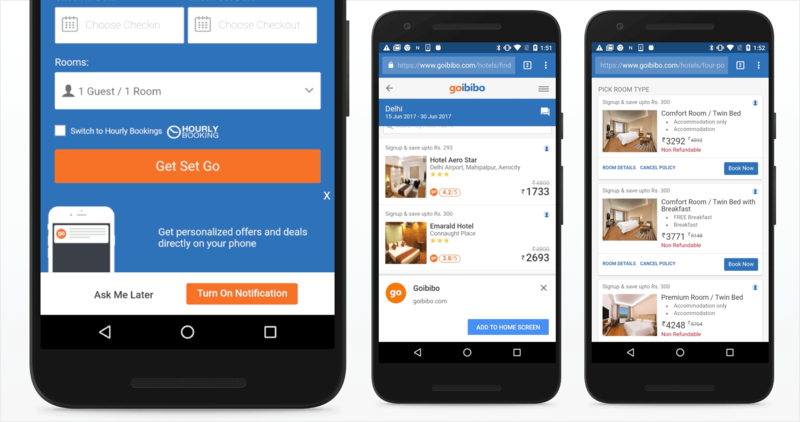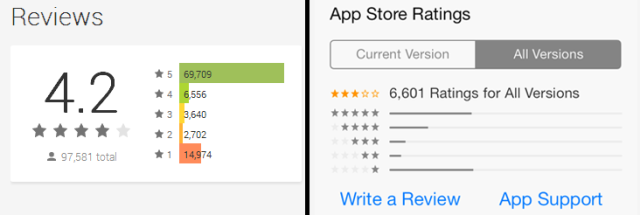Stagnant App Marketing Strategies Are Hurting Your Brand
- Mobile
- June 15, 2019
Old marketing habits can be hard to quit, especially if you’ve been using them for your entire career. But, it’s time to face the truth, you’re really hurting your brand. With the advancement of technologies, we’ve pretty much spoiled our customers.
And because there is a lot of competition in the market, every brand wants to be the favorite and every one of them would do as much as they can to please their customers.
Expert companies keep upgrading their marketing strategies to make sure that their brand stands out and attracts customer attention. The point is that, if you’re still stuck with the old marketing habits, then you’re in for a haul.
I’m pretty sure that you’re really looking forward to learn about app marketing strategies. For marketers that can’t seem to leverage their brand, I will reveal exactly how they are hurting their brand and what strategies they should adopt for success and revenue.
Top App Marketing Mistakes That Hurt Your Brand
First, let’s dive into some app marketing mistakes that are lowering your brand’s reputation:
1. Not building relationships with customers
A very common, in fact, a traditional marketing habit is bombarding users with boring information about your product rather than creating two-way dialogue.
The problem is that marketers just want to sell their products, they are more focused on the ‘me, me and me’ approach when in reality your marketing strategy should be more focused on ‘benefiting the user’.
A simple example of this is, advertisements, people hate advertisements. A survey held by Statista, reveals that nearly 26% of users utilize ad blockers to get away from the otherwise annoying ads.
The ‘me-and-only-me’ approach would probably be successful in the 1950s, but not in 2019.
In today’s world, two-way communication has become very important, so instead of bombarding users with information, you can try providing them content that shows that you’re working to help them solve a problem.
If you’ve created a fitness app, you can highlight the value it will add to the user’s routine. If you’ve created a gaming app, you can show all the incredible features and functionalities that make your app stand out from the rest in entertainment.
When you connect with your customers on social media, online forums, and through emails, make sure that the content you send out reflects that you’re open for conversation.
Instead of useless product praising, you can add a question, or tailor interactive elements that will help generate dialogue between you and your customer.
2. Rarely updating your social media and website information
Suppose you’re looking for an app that sells sneakers. You’re thinking of purchasing 2 pairs of the latest Air Jordan’s from the same retailer. After a few minutes of looking through the app store, you finally come across an app that sells the latest branded sneakers.
You decide to visit their Facebook business page. You look for page reviews, but you can’t find any. Then you decide to look at their posts, but, it appears that the last time the admin posted something was 5 months ago. You look at the images, but the sneakers you’re looking to buy are not there.
What would you do? Most consumers would probably abandon the page as well as the app as soon as they see outdated posts.
The point is, if you are using social media to attract visitors to your mobile app, there is no point if you’re inactive and you rarely update your social media platforms or your website.
In today’s world, in order to validate your products, most people look for proof that verifies your authenticity using social media, reviews, and your website. You have to show some activity, after all, your competitors might be doing a pretty good job, and your visitors have plenty of other options.
3. Inability to re-market to past users
It is a common saying among marketers that ‘80% of your business comes from 20% of your customers’. The problem is that mobile app companies focus on increasing their audience and forget about increasing the value of the 20% users.

A recent report shows that from the 100% users that install your app today, only about 25% will be active after a weeks’ time. And some marketers follow the logic that once users have had their app experience, they are of no value to your app. However, they are wrong.
The 70% of users that have already converted have a greater chance of engaging with your app as compared to new users. If you cannot re-engage your converted customers, then you’re in-fact losing 70% of your users every week.
In order to re-engage your users, you can send personalized notifications, interactive ads, and offer discounts for re-engaging with your app.
4. Not focusing on mobile app reviews
As mentioned in the above example, before users purchase goods they look for validation using customer reviews on social media and other platforms. If your app doesn’t have any reviews and ratings, most people would think that your app is useless or spammy.
Social proof plays a major role in the number of app downloads; High ratings and good reviews help you rank on the app store, and also increase your audience.
5. Pushing out random content
A stagnant and very annoying marketing strategy, is creating and distributing lengthy content that doesn’t meet the expectations of today’s consumers.
Users are more attracted towards content that is interactive, relevant, and compelling (e.g this year marketers are more focused on sending out video content because users are more attracted towards videos as compared to other elements).
So if you really want to improve your app marketing strategy, focus on pushing out engaging content that resonates with your target audience.
Ways to Improve your App Marketing Strategy
1. Progressive web apps can do wonders
Progressive Web Apps are websites that look and function just like your native mobile apps.

PWA’s have been accepted with open arms by popular companies including Google. By incorporating this fresh technology in your app marketing strategy, you will be able to draw a greater audience and even increase the user retention rate.
You might be wondering, how exactly can PWA’s leverage your app?
Truth be told, some users end up abandoning your app because it took up their phone’s memory.
With a PWA, users can simply type in the required URL of your app in a browser, and they will be directed to a website that looks, feels, and functions exactly like the native app.
So, no need to install an app after all. It’s no doubt that technology has spoiled us and our customers, people don’t like waiting around for an app to download. Thankfully, PWA’s remove the need to download and install apps.
2. Improve the user experience with updates and fresh content
I’ve already mentioned how not updating your social media and website can cause users to abandon your app. What would happen if you don’t update your app? ‘It will get boring.’
In order to keep your audience engaged, you need to keep delivering content that will encourage them to continue using your app.
Asides this, updating your app itself is very important. Take the example of Facebook, if you compare Facebook with its 5-year-old version, you can see some prominent differences; This is because Facebook is constantly updated to stay tuned with trending technologies.
Consequently, if you keep providing fresh content to your users, they will continue to have a better user experience.
Read also: How to Improve the User Experience of your Mobile App
3. Use social media for productive app marketing
Social media is an excellent tool for successful App Marketing because people are more socially active than ever. Think about it, almost everyone you know has a Facebook account, if not Facebook, you can find them on LinkedIn, Twitter, Instagram, and even TikTok.
This naturally means that you have numerous platforms to connect with people all across the globe. Here is how you can use Social Media for mobile app marketing:
- Upload interactive video content about your app. This is very useful if you’re more focused on developing gaming and entertainment apps.
- Use Paid ads to reach an interested audience
- Pair with influencers to promote your apps
- Encourage reviews and ratings
- Understand how to use individual social media platforms to engage users.
4. Build customer relationships to get them coming back for more
Here some tips to strengthen your relationship with your customers:
Personalized Communication: Make sure that your users can easily interact with you, ask questions, request your services, and make purchases.
By using intelligent in-app communications you can generate useful one-to-one engagement for your consumers; this is a good way to make your consumers feel valued so that they continue to use your app on a regular basis.
Customer Feedback: Customer feedback plays a major role in strengthening your customer relationships. So make it incredibly easy for your customers to give you feedback because you will have consumers that would want to connect with you, tell you what they like, and points out features that are not so thrilling.
These are consumers that you want to keep because they will play a major role in improving and empowering your app.
Customer Research: You can conduct research on the audience that you already have for your mobile app. Figure out which features your users interact with the most and what their demographics are.
When you have that information, you can work towards improving your app to align with your user’s needs. These customers will continue to engage with your app as long as you keep benefiting them.
5. Encourage reviews and ratings

I’ve mentioned above that reviews and ratings can help improve your rankings on the app store and the Google play store, this will ultimately lead to more app downloads and increased revenue.
So you’ve probably been wondering, how can you get reviews and ratings for your mobile app? Here is how:
- When you finally launch your app, hold seminars in small communities and let people use your app. You can ask them to rate and review your app.
- Use an app review plugin like Appirater, you will be able to encourage users to review your app.
- Use social media to encourage your followers to review your app.
Read also: The Most Valuable Tips to Get 5 Star Ratings and Reviews for Your App
Conclusion
2019 is the year to leave behind your old marketing habits and adopt strategies that are more productive and more efficient. With technical advancements, people are expecting more and companies are competing with each other to fulfill their needs.
If you stick with your stagnant methods of app marketing, you will be harming your app and your organization. It’s time to start fresh, incorporate PWA’s in your social media marketing strategy, reach out to influencers, and leverage your brand with social media.
Authors Bio
Khloe Hunter is a Digital Marketing Executive for Appverticals. Her expert writing skills, enable her to convert complex information, into content that anyone can read. Her technical educational background, combined with know-how of content marketing, gives her an edge over others in a variety of blog posts.













